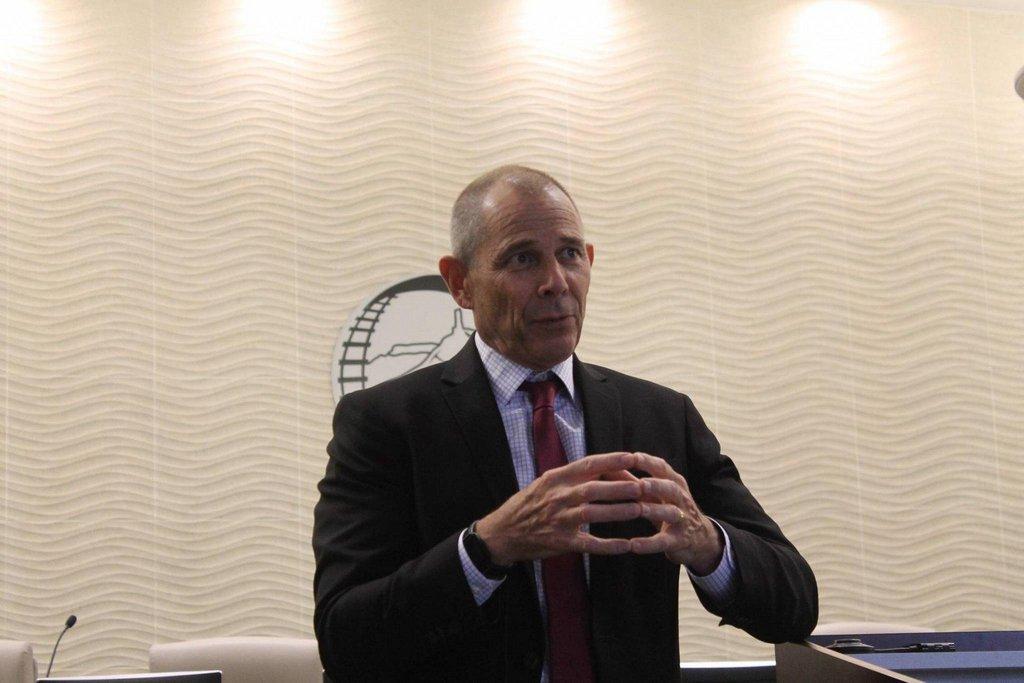The Utah Economic Task Force hosted its second virtual Town Hall on Thursday. During this session, they were joined by Congressman John Curtis from his office in Washington DC, where a lot is happening.
Congressman Curtis is a member of the Small Business Committee and is very concerned in the needs of small businesses. This week, the US Senate passed the aforementioned bill that will provide a great amount of funding to assist during the battle against COVID-19.
The bill is expected to go by voice vote, where the bill will be brought out and if nobody objects to it, it will pass no matter how many members of congress are there.
However, if even one person objects, that demands a role call vote. From there, there must be 218 persons brought in to pass the bill. If one objects, all will stop and the time will be taken to gather that number of persons for the bill. However, Congressman Curtis expressed that he has a lot of optimism that it will pass.
This is the third bill that will have passed and is the most substantial. Many are also already speaking of a fourth bill. Congressman Curtis hears from many businesses that a lot has been left out, which is important feedback if a fourth bill comes through.
A big question received is how soon the funds will be sent out once the bill passes. Individual checks are estimated for about three weeks. For those that actively pay their taxes and give the IRS their banking account information, the pay will be processed and come through that way.
For small businesses, the bigger question is when the loans and/or grants will be made available. One of the good things about the bill, according to Congressman Curtis, is that every single federally-backed financial institution and some state-backed can do loans. They do not have to go where SBA loans were conducted previously.
Congressman Curtis believes that, within hours that the bill is passed, the loans will be available for the small businesses, though it may take a few days for the banks to get their feet underneath them. With this is mind, Congressman Curtis still encourages businesses owners to call the banks and get in the queue.
The second question that he is asked the most is “did we overreact?” The congressman believes that it is a legitimate question that will be asked for months. Recently, he heard two things that are important to understand. One is to know and believe that, had the government not acted the way they did, that the hospitals would be over capacity.
With this in mind, the decisions would have to be made about who gets healthcare and who does not. Secondly, many cannot be sealed off from the world in this day and age. Those over 75 that are hospitalized have a mortality rate of 52%.
Furthermore, 20 percent of the people that are infected show no symptoms, meaning the possibility that many are around elderly and are contagious are very high.
The next question answered was “What can we expect?” Experts estimate that New York City (NYC) is about two to three weeks away from hitting the top of its curve. The problem is that they expect other cities to rise in the way that NYC did.
Currently, mass transit is being looked at as a major culprit. Congressman Curtis stressed that a big goal at this time is to get mass testing and random testing out.
One question posed to the congressman is if what is being told about the funds coming in is too good to be true, to which he answered that, genuinely, all he has heard lately is that small businesses must be assisted. There is a genuine interest to reach out and help. However, Congressman Curtis did state that this needs to be approached like every loan taken out.
As a general rule, money spent under certain conditions on payroll, mortgages, utilities and the like will be forgiven.
Following the congressman’s detailed report, University of Utah David Eccles School of Business Dean Taylor Randall spoke. He stated that this bill will provide stability to businesses and employees.
There are three stages to the bill: the urgent phase, the stabilization phase and the recovery phase. The three phases allowed for significant planning at the business school, with the urgent phase projected to last eight to 12 weeks. They have constructed a six-month plan with many targets in place.
Following his presentation, a number of others were heard from, including David Moody, who owns a winery, brewery and distillery in St. George.
Moody’s businesses ship out by the semi-load to Utah, Las Vegas and Arizona. He also has a canning production that goes to Smith’s, Walmart and Maverik. The canning side has worked well. Moody’s companies are in talks of distributing spray bottle hand sanitizers that individuals may carry with them.
With this distribution, the company assures that they are following WHO and FBA guidelines. Product should be running within a week or a week and a half.
Also discussed was that Washington County is implementing an SBA program that will act as a GAP program until the SBA funds come in. Businesses that are within the county are now eligible to secure at greatertogetherfund.org.
Information from various sources that are concise as possible will be available for viewing soon. The next town hall is scheduled to take place on Tuesday afternoon at 4 p.m.


